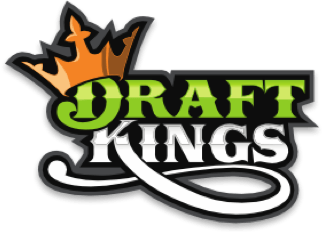DraftKings, ESPN Ink Exclusive Marketing Deal
If you weren’t sure if daily fantasy sports (DFS) had hit the mainstream yet, maybe this will convince you. Boston-based DraftKings, Inc., one of the two largest websites in the DFS space, has signed an exclusive marketing deal with ESPN. No dollar amounts have been revealed, but according to the ESPN press release, the agreement includes, “….branding and promotional opportunities across multiple ESPN and DraftKings’ platforms including integration into digital properties and television programming.”
ESPN has hosted fantasy sports leagues for a long time – it and Yahoo! are the most popular “regular” fantasy sports league sites on the internet – but it has not entered the realm of DFS yet. For those unfamiliar with fantasy sports, the difference is in the duration of the contest. In traditional fantasy sports, contestants pick players from teams in real-life leagues, say, the National Football League (NFL), and score points throughout the season based on how those players do statistically. Formats vary from league to league – standings could be based on head-to-head matches between league members each week or based on cumulative stats throughout the year, team composition may vary, and draft mechanics can differ – but the basic premise is that the league is a season-long contest.
 These are quite a lot of fun and add excitement to the real sports throughout the season (I normally couldn’t care less what the Miami Dolphins do, but I have Dolphins QB Ryan Tannehill on my team, I will become very interested in their games). The problem is that league members often lose interest throughout the year and stop playing. Players might be at the bottom of the standings and stop caring, their lives might get too busy, or they just get tired of keeping track of their team and league. When league members stop playing, the rest of the members don’t have as much fun.
These are quite a lot of fun and add excitement to the real sports throughout the season (I normally couldn’t care less what the Miami Dolphins do, but I have Dolphins QB Ryan Tannehill on my team, I will become very interested in their games). The problem is that league members often lose interest throughout the year and stop playing. Players might be at the bottom of the standings and stop caring, their lives might get too busy, or they just get tired of keeping track of their team and league. When league members stop playing, the rest of the members don’t have as much fun.
Enter daily fantasy sports. As the name implies, these leagues are usually one-day contests. Competitors compose a team for a given sport – sometimes via a draft, sometimes using a pretend salary structure – and hope their players perform the best on that single day. Leagues sometimes last a week, as well, as is the case for the NFL, when there are games on Monday as well as Sunday (also Thursday, but those games aren’t always counted). The benefits here are obvious: you can have fantasy sports fun without the commitment. If your team stinks, it gets tossed out at the end of the day and you can start over tomorrow.
DFS has grown in popularity quickly in the United States, particularly because it is a form of gambling that can actually be played with real money online. A carve-out in the Unlawful Internet Gambling Enforcement Act of 2006 (UIGEA) permits real-money DFS as long as three criteria are met:
1. All prizes are made known in advance of the contest and their value is not determined by the number of entrants or the entry fee.
2. Results “reflect the relative knowledge and skill of the participants” and must be determined “predominantly” by the stats produced by athletes in multiple games.
3. The winning outcome of the DFS match is not based on point spreads, a single real-world team, or a single real-world athlete.
There is some question as to the first point, but most contests are setup like poker Sit-and-Go’s, where the prizes are known ahead of time (even though they are technically based on the buy-in and number players) and larger, scheduled tourneys have guaranteed prizes.
According to the Boston Globe, DraftKings players ponied up $304 million in entry fees last year and the company raked in $40 million of that after paying out prizes. Its top competitor, FanDuel, brought in $622 million in fees and netted $57 million after prize payouts. Both will likely make a lot more money this year.
Reports were that Disney, which owns ESPN, was going to invest $250 million in DraftKings, but Re/code has reported that this will not happen. That deal would have put the value of DraftKings at $900 million.
Daily fantasy sports has become a new way to make money for many online poker players, especially those who opted not to move out of the United States to pursue poker. It requires a similar level of skill and analysis and actually gives players more freedom with their time because once their set their teams, they don’t have to do anything. The prep work certainly requires a time commitment, but the competition does not. Poker, on the other hand, requires active participation the entire time.
Former poker players aren’t just customers of DraftKings, either. Matt Kalish, one of the company’s founders, is a former professional poker player as is Jon Aguiar, the firms’ Director of Customer Experience. Both still play poker on occasion for fun.



















COMMENTS